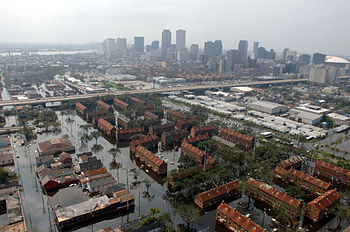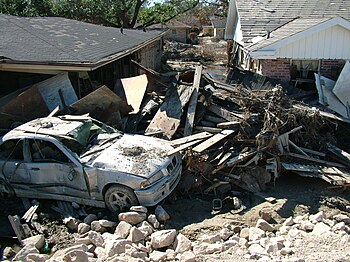By Mark Goldwich
Last time we started
talking about late-phase delays, and we ended with the field adjuster finally
getting the claim file and estimate to the often overworked and all too often
inexperienced examiner (office-based file reviewer). Remember, these examiners
are usually reviewing the files of multiple field adjusters who are all trying
to crank out files for payment (mainly for their own fee payment) as fast as
possible. This can result in a new stack of files being delivered to the
examiner daily.
If
they’re so overworked, why don’t they just approve my claim?
 Suppose you had this
person’s job. What kind of impression would you make on your employer if you
“rubber-stamped” everything that came across your desk?
Suppose you had this
person’s job. What kind of impression would you make on your employer if you
“rubber-stamped” everything that came across your desk?
It’s a little-known
fact that most independents get paid more for higher claim estimates. But
insurance company examiners know all about this state of affairs, and they are
inclined to compensate for it. In fact, they are trained and dedicated to
“correcting” adjusters who are “padding” estimates for a higher fee. There’s
not only a built-in mechanism for delay; there’s a built in incentive for
skepticism about the dollar figures associated with claim estimates.
How deep does that skepticism run? Consider this: I recently spoke
with an independent adjuster who complained that when his estimate is adjusted
down he only gets compensated based on
the amount actually paid on the claim. If the claim is later re-adjusted, and the policyholder is
eventually paid exactly what the independent initially requested, the
independent adjuster still does not get paid what he would have been paid if
his initial estimate had been accepted!
By the way, after
this happens a few times, how long do you think it’s going to take the independent
adjuster to realize that he or she might as well just write the claim estimate for
the (low) amount the insurance company is going to accept, and save the time
and aggravation of writing the estimate for the (higher) amount that it should
be written for?
What
happens if the adjuster gets my claim kicked back to him or her?
 There is additional
delay. The adjuster now gets it back in his or her system. The adjuster has to
find time to look at the file again to see what the examiner had a problem with;
and then the adjuster has to try to resolve the problem, which might require
another inspection. That means another trip through the adjuster’s to-do list, probably
a lengthy trip. And then, of course, your claim may require additional
photographs, additional documentation, and additional phone calls. It is
definitely going to require additional time.
There is additional
delay. The adjuster now gets it back in his or her system. The adjuster has to
find time to look at the file again to see what the examiner had a problem with;
and then the adjuster has to try to resolve the problem, which might require
another inspection. That means another trip through the adjuster’s to-do list, probably
a lengthy trip. And then, of course, your claim may require additional
photographs, additional documentation, and additional phone calls. It is
definitely going to require additional time.
Cut
to the chase. How long is it going to take for me to get a check I can actually
cash a check that comes close to covering the valid claims I have?
That’s the big
question, of isn’t it. Assuming that the case does not end up in litigation,
you can count on six months to a year before you get your money if you’re
trying to do this on your own. To be sure, some people complete the process in
just a few months. There are three possible reasons for this. One: They’re
not getting all they’re entitled to. Two: They’re very, very lucky. Three:
They’re working with someone who knows the system quite well.
What
if my claim is still disputed after a year or so?
It happens. In that
case, you are probably headed to court (or should be), and can count on another
two to three years before the claim is resolved by litigation. The insurance
companies also know this, and they are not particularly worried about the time
factor. It seems there is simply not any meaningful incentive for them to wrap
the process up more quickly. In fact, just the opposite seems to be the case.
The longer the delay, the more likely it is that policyholders will either walk
away from their claims altogether or at least walk away with less than they
have coming. It’s my experience that most people simply don’t realize how badly
they’ve been underpaid, or have no idea how to dispute the claim, or are too
mentally exhausted to bother anymore.
Would
working with a public adjuster be likely to reduce the delays?
The answer is almost
certainly “yes.” A qualified public adjuster knows how the bureaucracy works (or
rather, doesn’t work). A qualified public adjuster knows what, if
anything, can be done to expedite any part of the “holding pattern.” An
additional benefit, of course, is that the public adjuster isn’t emotionally
involved to the same degree that you are, which means he or she may simply be less
shocked, burnt out, and/or furious about the delays than you are.
Again, a cynical man
might wonder whether the insurance companies count on the policyholder’s
losing sleep – and initiative – over the extraordinary delays associated with
getting the money they are owed.
Does
pursuing a claim without outside help really burn policyholders out?
Definitely. I’ve seen it
time and time again. After a certain amount of time, people have spent so much
time and psychological energy on this problem they just cannot face it any
more. The months go by, and people simply give up on believing that they can
affect the outcome. So they take what they’re offered -- or, to be more
accurate, accept that they haven’t been given what they deserve – and try to
move on with their lives. That costs them money that they have coming to
them. Here’s the moral of the story: You’d work with an attorney to handle
serious legal problems. You should work with a public adjuster to handle
serious insurance problems.
Unfortunately, delay
is not the only problem you are likely to encounter when dealing with an
insurance company after a hurricane, fire, flood, or other insured loss. You’ll
also have to deal with denial – quite possibly the most powerful weapon in the
insurance industry’s arsenal (next to time, and money – they have plenty of
weapons!).
Mark Goldwich is
president of Gold Star Adjusters, a group of public
insurance adjusters dedicated to helping citizens get the maximum settlement
for any insurance claim.












